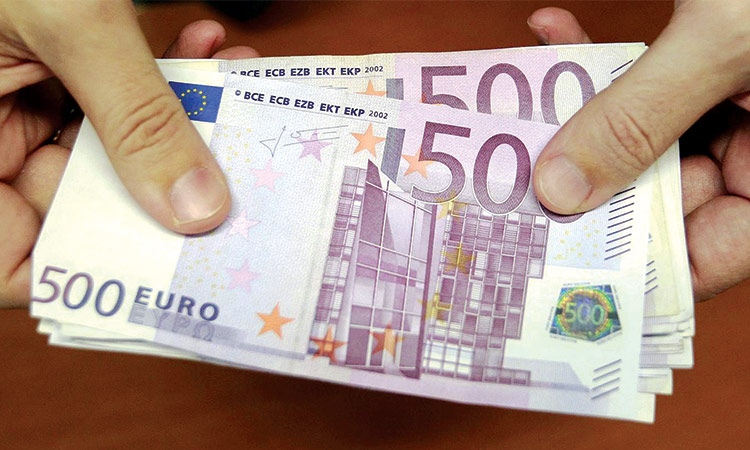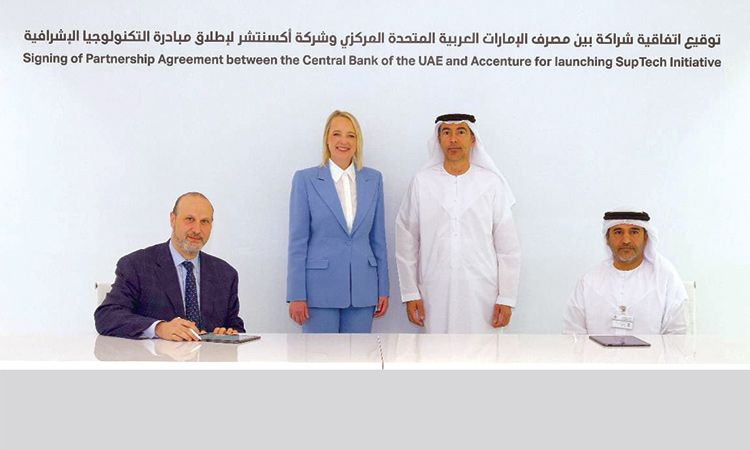Businesses across eurozone stumble into second quarter

Employees at the Porsche factory in Stuttgart-Zuffenhausen, Germany. Reuters
Growth stuttered in Germany and forward-looking indicators in its Purchasing Managers’ Index suggest a contraction among manufacturers in Europe’s largest economy will continue for a few more months at least.
“The big disappointment is that the German Manufacturing PMI was barely any higher than it was last month and, at 44.5, it points to a continuing industrial recession,” said Andrew Kenningham at Capital Economics.
The euro fell against the dollar after the worse-than-expected German data.
Activity in France, the bloc’s second-biggest economy, only stabilised this month after contracting in March. An unexpected rebound in services offset continued weakness in manufacturing.
Germany and France are the only two eurozone economies to report flash readings.
“A weighted average of the Composite PMIs for the rest of the eurozone must have dropped back again in April, so there may be more disappointing news to come from Italy and/or Spain when the final surveys are published at the end of the month,” Kenningham said.
Considered a good guide to economic health, IHS Markit’s flash composite eurozone PMI fell to 51.3 this month from a final March reading of 51.6, confounding the median expectation in a Reuters poll for a rise to 51.8.
“The euro area outlook is challenging to say the least, and the ECB remains tilted towards further easing measures,” said Jan von Gerich at Nordea e-Markets.
A week ago, European Central Bank President Mario Draghi raised the prospect of more support for the struggling eurozone economy if its slowdown persists.
IHS Markit said the PMIs, if maintained, indicated second-quarter GDP growth of just under 0.2 per cent, below the 0.3 per cent predicted in a Reuters poll earlier this month.
New business barely increased in April - the sub-index nudged up to 50.6 from 50.5, close to the 50 mark dividing growth from contraction - and there is scant sign of an imminent turnaround.
The downturn was again led by manufacturing. While its PMI rose to 47.8 from March’s 47.5, it spent its third consecutive month below the break-even mark and was below a median forecast for 47.9.
An index measuring output, which feeds into the composite PMI, rose to 48.1 from 47.2, but for an eighth month factories ran down old orders to keep active. The backlogs of work index fell to a more than six-year low of 44.4 from 45.0.
A PMI covering the bloc’s dominant service industry fell more than expected, dropping to 52.5 from March’s 53.3, below the median forecast in a Reuters poll for 53.2.
Like manufacturers with no meaningful increase in new business, services turned to filling old orders.
And suggesting they see little improvement in activity over the coming year, optimism waned. The business expectations index for services fell to 62.0 from 62.3.
British shoppers ignored worries about an impending Brexit deadline and spent heavily in March, official data showed on Thursday, supporting the country’s sluggish economy while companies were cutting back on investment.
Retail sales volumes surged by the most in nearly two-and-a-half years in annual terms, leaping by 6.7 per cent. That was way above all forecasts in a Reuters poll of economists.
The increase in part reflected the slowdown in spending a year ago, when Britain was hit by the so-called Beast from the East snowstorms and icy weather, officials at the Office for National Statistics said.
Warm weather in March this year helped increase spending on clothes, the ONS said. Sterling rose on the data, reaching a session high against the euro.
Britain was originally due to leave the European Union on March 29, but that deadline was pushed back to April 12 and then again to Oct.31 as Prime Minister Theresa May failed to break an impasse in parliament on the terms of Brexit.
The figures published by the ONS on Thursday covered the period from Feb. 24 to March 30.
“There is hope that the delay in a potential no-deal Brexit until October will allow the stronger retail sentiment to remain undiminished,” said Jeremy Thomson-Cook, an economist at WorldFirst, a currency exchange firm.
“However, a word of warning: credit card defaults in the UK have risen significantly in the first quarter and sit at the highest level since 2015, which could threaten the brighter-than-expected retail picture.”
In monthly terms, sales rose for a third month in a row, by 1.1 per cent. The median forecast in a Reuters poll was for a decline of 0.3 per cent. In the first three months of 2019, a smoother reading of spending patterns, sales grew by 1.6 per cent compared with the previous three months, the strongest increase since August 2018.
Reuters







